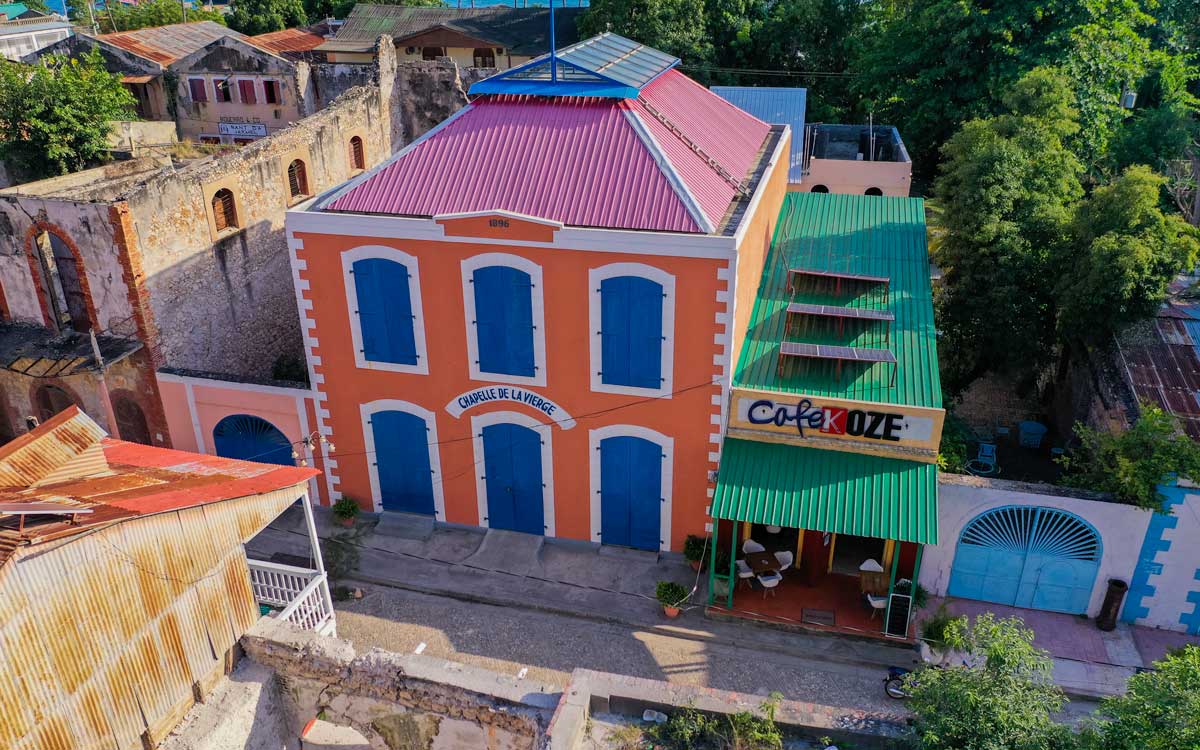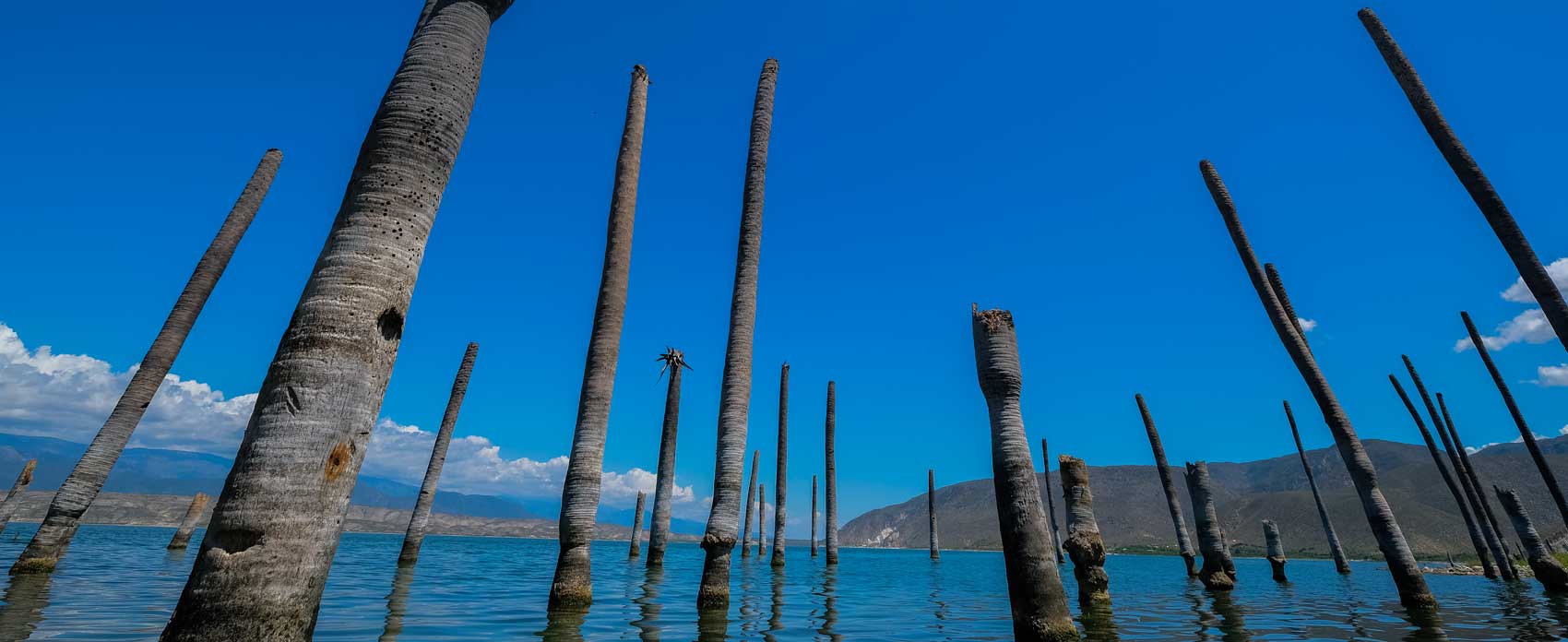
Photo: Franck Fontain
Lake Azuéi
Lake Azuéi lies 18 miles east of Port-au-Prince and borders Haiti’s next-door neighbor, the Dominican Republic. Spanning 65 blue square miles, Lake Azuéi is a remarkable ecosystem, and a great starting point for wilderness excursions.
Already Haiti’s largest lake, Lake Azuéi has been baffling scientists by rising for two decades – and no one knows why. Today, visitors to the site can see rows of pastel-colored facades that appear to be floating on the surface – the tops of houses, all that’s visible of now-flooded villages along what used to be the shores of the lake. Nearby, you can see trees growing through the glass-like surface as if defying the laws of nature. It’s a haunting picture.
Another quirk of this remarkable Caribbean lake is its salinity – also known as Étang Saumâtre, meaning “brackish lake”, Lake Azuéi is one-fifth the saltiness of the sea. In prehistoric times, the lake site was a marine strait, and its unique ecology is home to over 100 exotic species of water-loving birds and reptiles, including flamingoes and crocodiles.
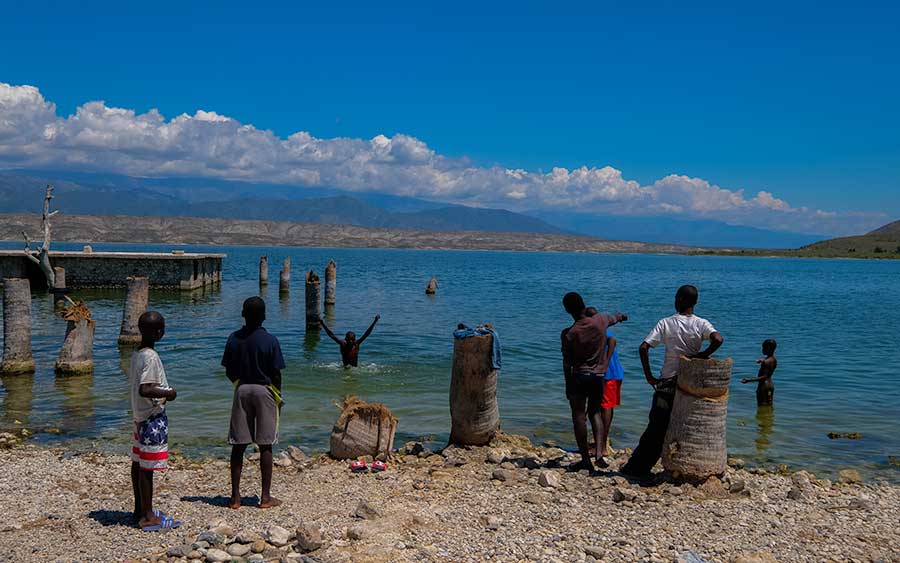
Photo: Franck Fontain
The riches of Lake Azuéi
Along one edge of Lake Azuéi, the Quisqueya Park nature reserve offers visitors the chance to wander through an impressive cacti forest. Inside the lake itself, commercial tilapia farms share space with wild flocks of waterfowl, once hunted, but now under official protection. One of the best ways to appreciate the vistas around Lake Azuéi is to plan your trip there to coincide with the birds that migrate to feed or breed here during certain times of the year.
Small villages dot the perimeter, and during the day, year-round, fishermen take their boats out, hoping to catch enough to support themselves and provide for their families. If you cross paths with one of these fishermen, you might be offered a tour of the lake. Tour fees start at 500 gourdes (roughly US $5.25) and sometimes cost more – haggling is a great skill to have, here, as it is at landmarks and markets across Haiti.
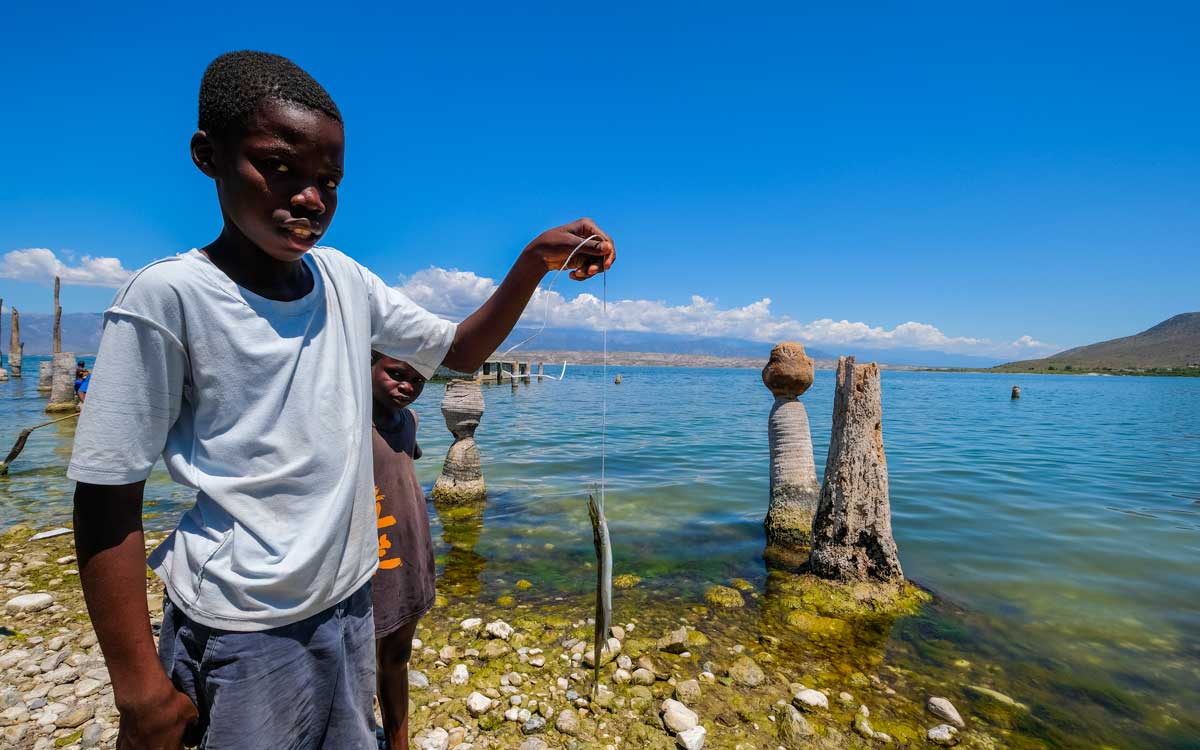
Photo: Franck Fontain
What if I don’t like flamingos or crocodiles?
If you are a fan of rara music, you’ll be happy to learn that during the Easter period, Lake Azuéi comes alive. Many open spaces and clubs fill up with a crowd of people looking to dance and enjoy the gorgeous landscape around the annual lake celebration, held toward the end of August each year, usually at Quisqueya Park where it overlooks the lake. The lake is also a popular place to stage rara Easter festivities, making it a brilliant place to experience a real Haitian rara Easter.
To access Quisqueya Park, you’ll need to be accompanied by a guide unless you arrive during the August celebrations. Throughout the official celebration period, visitors can browse art and craft exhibitions with local and foreign artists, and guided visits are much more organized and frequent, but the main attraction is the same as it is at any other time of year – swimming! Zabeth Springs, in the town of Ganthier, not far from Lake Azuéi, attracts small crowds of curious visitors on most weekends. International adventurers join residents of Port-au-Prince in diving into the springs, and finish their day with a swim down at Lake Azuéi.
Sunshi Beach and Estofa Beach are established spots for relaxation by the lake, and the Cabane Hotel Resto is a great place to wake up facing Lake Azuéi.
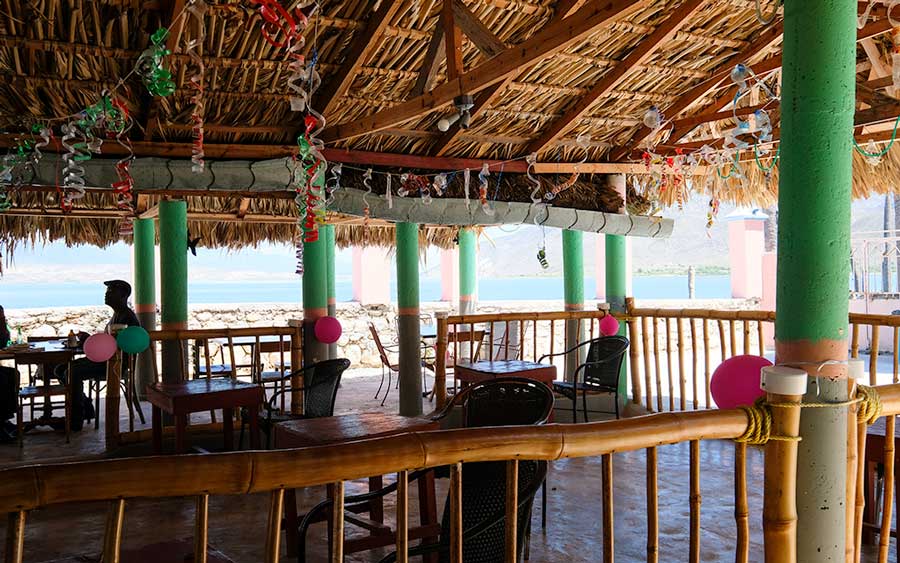
Photo: Franck Fontain
Getting there
Lake Azuei is easy to access, located just 18 miles east of Port-au-Prince. If you have a guide, they will be able to take you privately – take the road that leads to the Plain of the Cul-de-Sac (French: Plaine du Cul-de-Sac), and keep going east – you won’t miss it.
For travelers coming from the Dominican Republic, public transportation will drive you right up to the lake. Buses wind alongside the lake shore, offering gorgeous views. Some adventurers hit the road on a motorcycle or moto, the most common mode of transportation in Haiti. While very exciting, we can’t really recommend it to first-time visitors to the lake because the lake is huge and being on the back of a bike that long just isn’t comfortable.
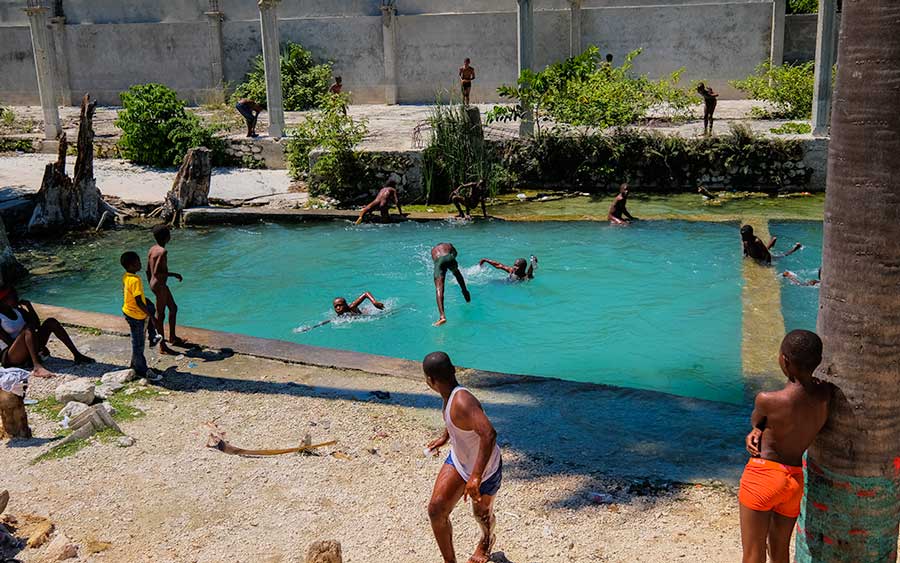
Photo: Franck Fontain
Find Lake Azuei
External Links
Read more about the lake on Wikipedia

See photos from Azuéi on National Geographic
Looking for some cool things to do?
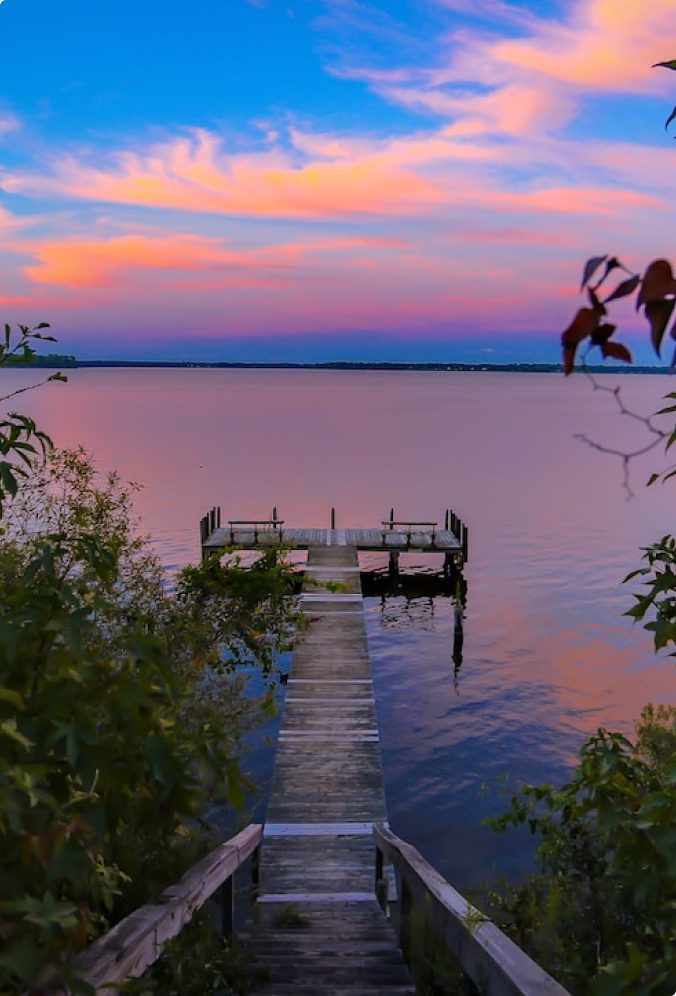
Paradise for your inbox
Your monthly ticket to Haiti awaits! Get first-hand travel tips, the latest news, and inspiring stories delivered straight to your inbox—no spam, just paradise.


